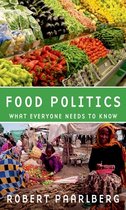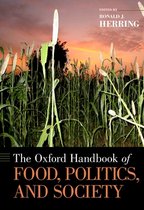The Politics of Hunger Protest, Poverty and Policy in England, c. 1750–c. 1840
Afbeeldingen
Sla de afbeeldingen overArtikel vergelijken
- Engels
- Paperback
- 9781526167033
- 18 oktober 2022
- 280 pagina's
Samenvatting
In the age of Malthus and the workhouse when the threat of famine and absolute biological want had supposedly been lifted from the peoples of England, hunger remained a potent political force – and a problem. And yet, hunger has been marginalised as an object of study by scholars of late eighteenth- and early nineteenth-century England; studies either framed through famine or leaving hunger to historians of early modern England. The politics of hunger represents the first systematic attempt to think through the ways in which hunger persisted as something both feared and felt by the poor, was the subject of public policy innovations, and was central to the emergence of new techniques of governing and disciplining populations.
This study analyses the languages of hunger that informed food riots, other popular protests and popular politics, the resort to and effects of Speenhamland-style ‘hunger’ payments, workhouse dietaries, how hunger was made and used in making and disciplining the poor as racial subjects, and, finally, how popular responses to the Irish Famine framed understandings of hunger relationally. Conceptually rich but empirically grounded, the study draws together work on popular protest, popular politics, the old and new poor laws, Malthus and theories of population, race, biopolitics and the colonial making of famine, as well as reframing debates in social and economic history, historical geography and famine studies more generally. Complex and yet written in an accessible style, The politics of hunger will be of interest to anyone with an interest in the histories of protest, poverty and policy: specialists, students and general readers alike.
The 1840s witnessed widespread hunger and malnutrition at home and mass starvation in Ireland. And yet the aptly named ‘Hungry 40s’ came amidst claims that, notwithstanding Malthusian prophecies, absolute biological want had been eliminated in England. The eighteenth and early nineteenth centuries were supposedly the period in which the threat of famine lifted for the peoples of England. But hunger remained, in the words of Marx, an ‘unremitted pressure’. The politics of hunger offers the first systematic analysis of the ways in which hunger continued to be experienced and feared, both as a lived and constant spectral presence. It also examines how hunger was increasingly used as a disciplining device in new modes of governing the population. Drawing upon a rich archive, this innovative and conceptually-sophisticated study throws new light on how hunger persisted as a political and biological force.
This book is relevant to United Nations Sustainable Development Goal 2, Zero hunger.
Productspecificaties
Inhoud
- Taal
- en
- Bindwijze
- Paperback
- Oorspronkelijke releasedatum
- 18 oktober 2022
- Aantal pagina's
- 280
- Illustraties
- Met illustraties
Betrokkenen
- Hoofdauteur
- Carl J. Griffin
- Hoofduitgeverij
- Manchester University Press
Overige kenmerken
- Product breedte
- 156 mm
- Product hoogte
- 15 mm
- Product lengte
- 234 mm
- Studieboek
- Nee
- Verpakking breedte
- 156 mm
- Verpakking hoogte
- 15 mm
- Verpakking lengte
- 234 mm
EAN
- EAN
- 9781526167033
Je vindt dit artikel in
- Categorieën
- Boek, ebook of luisterboek?
- Boek
- Taal
- Engels
- Beschikbaarheid
- Leverbaar
- Studieboek of algemeen
- Algemene boeken
Kies gewenste uitvoering
Prijsinformatie en bestellen
De prijs van dit product is 38 euro en 99 cent.- Prijs inclusief verzendkosten, verstuurd door bol
- Ophalen bij een bol afhaalpunt mogelijk
- 30 dagen bedenktijd en gratis retourneren
- Dag en nacht klantenservice
Rapporteer dit artikel
Je wilt melding doen van illegale inhoud over dit artikel:
- Ik wil melding doen als klant
- Ik wil melding doen als autoriteit of trusted flagger
- Ik wil melding doen als partner
- Ik wil melding doen als merkhouder
Geen klant, autoriteit, trusted flagger, merkhouder of partner? Gebruik dan onderstaande link om melding te doen.









